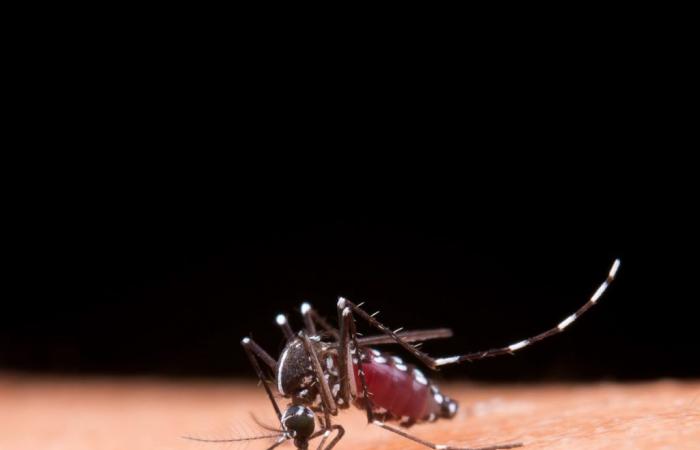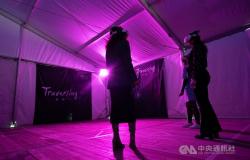Four new deaths from dengue were confirmed this Wednesday morning (20) in the south of Rio de Janeiro. Two deaths were recorded in Itatiaia and another two in Piraí.
According to the city hall, in Itatiaia, the first death was on January 12th. The victim is an elderly man, 77 years old. He was admitted to the Regional Hospital, in Volta Redonda, but could not resist and died.
The other victim is a young man, aged 25. The death was registered on February 11th at a health unit in Rio das Ostras.
According to the city hall, in Piraí, the first death was a 58-year-old man, on February 22nd. He was a resident of the Casa Amarela neighborhood.
The second and third deaths occurred on the 26th of the same month. The victims are two women, aged 26 and 68, residents of the Center and the Serra do Matoso neighborhood, respectively.
The state of Rio de Janeiro already has a total of 48 deaths from dengue in 2024. Of these, three (all from Barra do Piraí) have not yet been included in the official figures of the State Department of Health, but have been confirmed by the city hall.
In the south of Rio and Costa Verde, the number of deaths from the disease has reached 22. Check it out:
*The second, third and fourth deaths from dengue in Barra do Piraí have already been confirmed by the Municipal Health Department, but have not yet been included in the Rio de Janeiro State Government’s count.
The main actions that can be done at home weekly and last less than 10 minutes:
- Remove the dishes from the plant pots;
- Turn bottles upside down;
- Store tires in covered places;
- Clean the gutters;
- Tie the garbage bags well;
- Keep the water tank covered;
- Empty defrosting containers in refrigerators.
Biggest dengue epidemic in history
RJ is experiencing the largest dengue epidemic in history, estimates the Health Department
Signs and symptoms: what to do
How to know if you have dengue and if it is serious
Brazil is experiencing an explosion of dengue cases at the beginning of 2024. As of January 30, the Ministry of Health recorded 217,481 cases. In the same period of 2023, the country had 65,366 — an increase of 233%.
According to the Ministry of Health, this increase is due to factors such as the combination of excessive heat and intense rain (possible effects of El Niño) and the recent resurgence of serotypes 3 and 4 of the dengue virus in Brazil.
Dengue is part of a group of diseases called arboviruses. The virus is transmitted by the bite of the female Aedes aegypti mosquito and has four different serotypes: DENV-1, DENV-2, DENV-3 and DENV-4 — all of which can cause different forms of the disease.
All age groups are equally susceptible to the disease, but older people and those with chronic diseases, such as diabetes and high blood pressure, are at greater risk of developing serious cases and other complications that can lead to death.
A person can have dengue fever up to four times in their lifetime. This is because it can be infected with four different serotypes of the virus. Once exposed to a certain serotype, after the disease remits, she has immunity to that specific serotype.
The infection does not always present symptoms. The individual may have asymptomatic dengue fever or have a mild condition.
But you need to be careful if the person has a high fever (39ºC to 40ºC), of sudden onset, accompanied by at least two other symptoms:
- Intense headache
- Pain behind the eyes
- Muscle and joint pain
- Nausea and vomiting
- Red spots on the body
⚠️Attention: the ministry warns that it is important to seek a health service for adequate diagnosis and treatment when presenting possible symptoms of dengue.
The severe form is the one that worries. After the feverish period, the individual must pay attention to the warning signs:
- Severe and continuous abdominal pain
- Persistent vomiting
- Accumulation of fluids in body cavities
- Mucosal bleeding
- Hemorrhages
Treatment and diagnosis
The diagnosis of dengue is basically clinical — there is no need to perform specific tests. There is also no specific medicine for the disease. Dengue, in most mild cases, heals spontaneously after 10 days.
For mild cases with symptomatic symptoms, it is recommended:
- Relative rest, while the fever lasts;
- Encouragement of fluid intake;
- Administration of paracetamol or dipyrone in case of pain or fever;
- Do not administer acetylsalicylic acid;
- Recommendation to the patient to immediately return to the health service, in case of alarm signs.
“Patients who present warning signs or serious illness require hospitalization for appropriate clinical management”, warns the Ministry of Health.
VIDEOS: the news that aired on TV Rio Sul
Tags: deaths dengue confirmed south Rio South Rio Costa Verde
--





